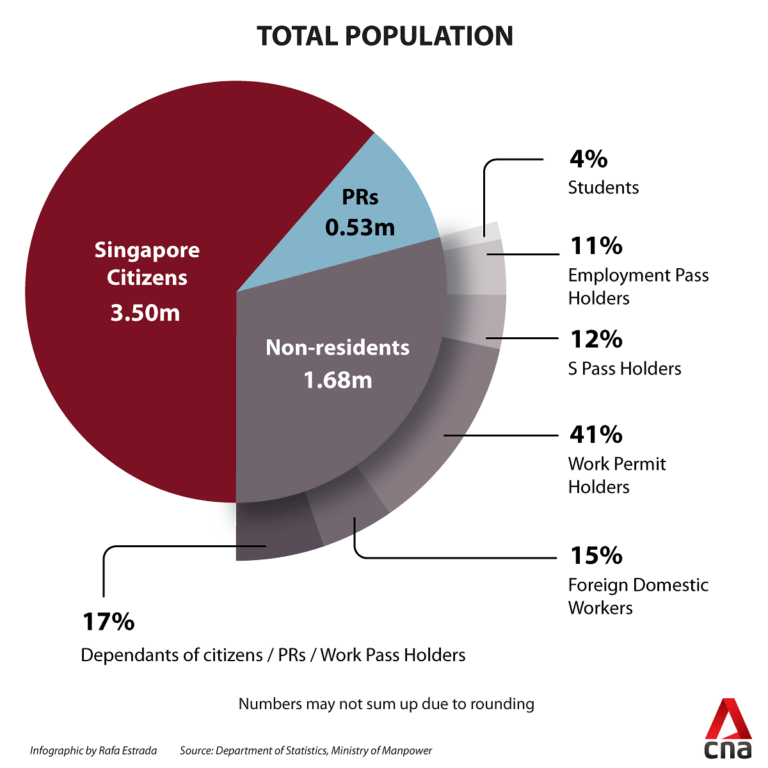It has been two years on since Covid-19 first cast a blanket of havoc globally. What I thought would merely take several months to settle (ala SARS), has now trudged on drearily with no cause for rejoicing in sight. Like the game of Snakes ‘N’ Ladders, the recent emergence of the Omicron variant - now the most dominant in several countries, reminds us that it is not a smooth-sailing linear path out of the pandemic just yet.
2022: A Year of Opportunities for Singapore?
With 2022 likely to continue to be haunted by Covid-19, it is even more evident now that we are forced to accept endemic Covid-19 as a fact of life.
Is It Naïve in Being Too Optimistic to See the Silver Lining in This?
The unpredictability of 2020 & 2021 has shown that for economies to thrive, businesses need to be able to innovate and adapt at scale and speed. This has been highly evident in Singapore, with the effects of Covid-19 pushing businesses through a phase of constant transformation over the past year due to cities going into lockdowns, restricted air and sea travels, and declines in supply-demand – which led to disruptions in the flow of goods and talent into and out of Singapore.
For the first time in over a decade, the foreign pass holder population in Singapore dipped, along with annual quotas on Singapore Permanent Residence, and Singapore Citizenship application approvals – casting a void in the talent required to maintain Singapore’s business hub moniker.
With high vaccination rates, easing of border measures, and working from home likely the default for 2022 in Singapore, we take away some positives as inbound immigration professionals in a post-pandemic world.
The Great Resignation and Talent Retention
A phenomenon called the “Great Resignation” has emerged. More than ever before, people are voluntarily leaving their jobs. Analysts in Singapore have predicted to expect a wave of resignations (and new opportunities) within the first quarter of the new year.
Covid-19 has unlocked a new talent pool that could benefit the global technology sector in particular, which is experiencing significant skills shortages. The ABCD’s of Tech (Artificial Intelligence, Blockchain, Cloud Computing, Data Science) represents core skill-sets in demand. To put things in perspective, Tech talent was already a major challenge, one that has since been magnified by pandemic-driven advancements in technology adoption. The additional strategies companies are using to meet their tech talent needs align with broader talent initiatives, such as upskilling existing employees, hiring contingent or freelance work, and improving the hiring process.
An active approach in widening the talent pool will be crucial for organizations amid structural shifts.
Digital Innovation and Rapid Digitisation
We have seen ten years of digital innovation in roughly three months and e-commerce across the globe has increased by two to five times from the levels prior to the pandemic. That will have a profound impact on a number of sectors.
Singapore will continue its journey as a Smart Nation – where people are empowered to live meaningful and fulfilled lives, offering opportunities for all through digital transformation. Technology is integral to Singapore’s next phase of smart nation-building. It has been acknowledged that for Singapore to continue to prosper and stay relevant, it needs to embrace digitalisation.
Many government initiatives have mushroomed over the last few years, supporting the transforming of Singapore through technology to improve the lives of citizens and businesses and to make Singapore an outstanding city where people can live, work and play. As with all countries, Singapore is short of engineering talent and the demand is going to grow even more. The number of fresh graduates each year would not be sufficient to fill this gap. Hence, the nation has to upskill the workforce so that more people can contribute to the digitalization efforts, including in modern technologies such as AI and Cybersecurity.
On a national scale, key trade agreements and pacts support this drive, as evident by the recent conclusion of the UK-Singapore Digital Economy Agreement (UKSDEA) and Korea-Singapore Digital Partnership Agreement (KSDPA).
The Consolidation of Wealth Through Family Offices
Since 2017, the number of billionaires in the Asia-Pacific continued to grow. This has been exacerbated by the pandemic with Singapore’s favorable tax exemptions providing a haven for the selected few. With family businesses playing a big part in the region’s wealth creation, around US$15.4 trillion in family wealth is expected to be passed down from one generation to the next by 2030. Of this, about 12% or US$1.9 trillion will be transferred to Asian heirs.
Green is the New Gold: Sustainability and COP26
2021 saw heightened environmental awareness and growing interest in sustainable/green investment products. In response, banks and financial institutions jostled to roll out green-themed offerings to meet demand. The growing green movement comes on the back of strong government support, evidenced by the Singapore Green Plan 2030 – where Singapore pledged to phase out the use of coal and turn instead to alternative or renewable energy such as natural gas, solar, regional power grids and low-carbon alternatives.
This focus on sustainability drives demand for talent within Environmental, Social, and Corporate Governance (ESG). Interest is growing in sustainability, but the sector still has a shortage of expertise. By 2030, it is estimated that the environmental, social and governance (ESG) investment category will hit US$1 trillion.
“Green is definitely the new gold,” said Mr Steve Stine, senior client partner at consulting firm Korn Ferry. “We’ve got another 10 or 15 years of transformation happening. It is essential right now to get the best talent in place because the clock is ticking.”
What Does This Mean for Foreigners Looking to Cement a Place in Singapore?
Despite the gloom that is COVID-19, there is no way but up for Singapore. Dependent on the injection of foreign investments and a gateway to Asia, trust in Singapore’s infrastructure and the government remains high. Taking a snapshot of client profiles we have helped across the finish line, the majority represents profiles congruent to the research and insights derived from actual market sentiments.
Granted, competition for Singapore Permanent Residence and Citizenship will remain high, we see 2022 as an opportunistic year for those with the relevant talent.







